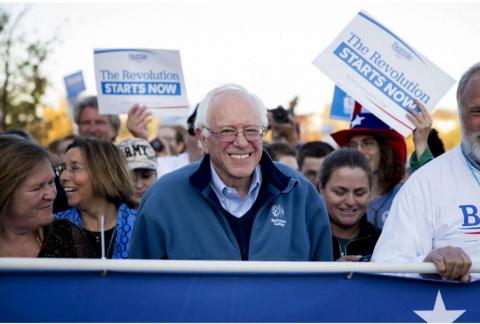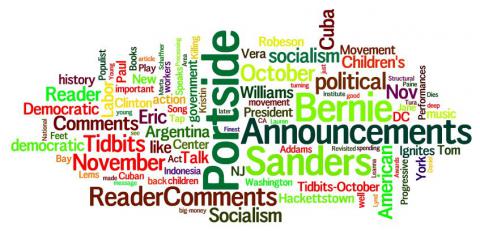Vampire Bats: More Cuddly Than You Think


Bernie Sanders explains in a few sentences why we need to make public college tuition free. His campaign is helping to spark the student movement for free tuition and other left causes.
Shooting almost entirely within a cab circling the streets of Tehran, the great director Jafar Panahi (Offside, This Is Not a Film) offers a multilayered mosaic of life in today's Iran.
Meet Dr. Wanda Evans-Brewer. She has been teaching for 20 years and has a PhD in Education. She is also living in poverty.
Alabama Shakes has a unique soulful rock sound. This is from their new (second) album, Sound & Color, which debuted at #1 on the Billboard 200.
Donald Trump started out with nothing but a million dollars and a dream. And since a million dollars is chump change to him now, Stephen has a suggestion for him.



Spread the word